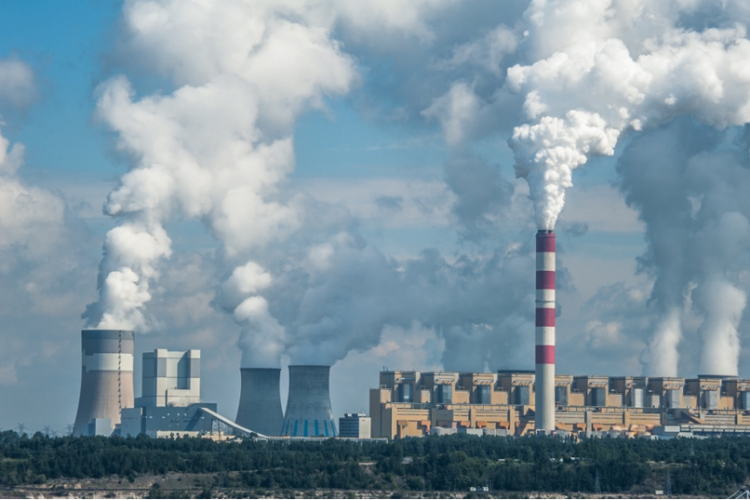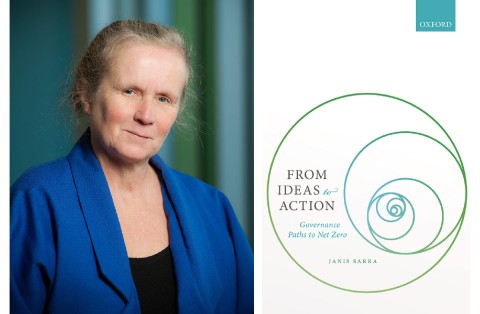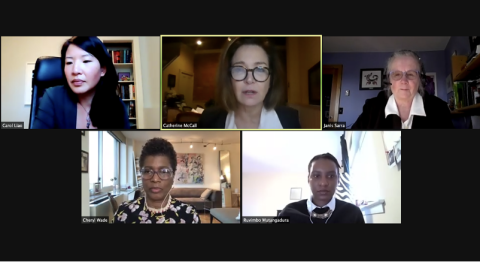CANADIAN IMMIGRATION UPDATES: Applicants to Master’s and Doctoral degrees are not affected by the recently announced cap on study permits. Read more

Fighting climate change: Moving from ideas to actions

In the decade that scholar and academic leader Dr. Janis Sarra has spent at the intersection of business law and climate change impacts, there is finally some reason to be optimistic—at least in Canada.
"There was a lot of misinformation about the impacts of climate change," reflects Dr. Sarra, who was the Presidential Distinguished Professor at the University of British Columbia from 2014 to 2020 and is currently a Professor of Law at the Peter A. Allard School of Law.
"I think that situation has changed and now there's momentum to move Canada to a sustainable economy. In Canada, we have appellate court decisions that have said, 'Climate change is an existential threat to humanity'."
As Principal Co-Investigator with the Canada Climate Law Initiative and the Commonwealth Climate and Law Initiative, Dr. Sarra has immense knowledge on the subject, which she shares in a new book titled, From Ideas to Action: Governance Paths to Net Zero.
At a recent panel discussion co-hosted by UBC Sauder’s Peter P. Dhillon Centre for Ethical Business, the UBC Allard Centre for Business Law, and the Centre for Feminist Legal Studies, Dr. Sarra discussed her book and climate action efforts in Canada
While progress is being made, she said individuals, communities and corporations struggle to move beyond the idea stage on their climate goals.
“They feel paralysed,” she says. “Because the idea of climate change is so huge, they think: how is my one effort going to change things?"
Dr. Sarra inspires readers to take the elusive first step and sow the seeds towards achieving a net-zero circular economy where carbon emissions are either reduced or offset by an equivalent carbon-capture activity, such as reforestation.
"I've been writing and researching climate change, legal obligation, and corporate governance for almost a decade. But in the last five years, there's been this exponential growth in information. Often, it's directed at one constituency, just business, just stakeholders, just environmentalists, just government. I really felt that it was time to pull together a book that took a lot of information and made it very accessible,” Professor Sarra explains. “So, I was very careful to take the best of the science, the most accurate analysis of the law, and the best of corporate governance practices, and then try to provide guidance.”
Christie Stephenson, Executive Director of the Peter P. Dhillon Centre for Business Ethics, praised Dr. Sarra’s work as ‘ground-breaking’ and believes the book will fuel more constructive discourse on climate change amongst corporate directors and pension trustees.
“All business leaders are being called upon to navigate the risks and opportunities inherent in the transition to a low carbon economy,” said Stephenson. “This book will be an invaluable resource for them.”
Essential reading on climate change and the economy
In the first few chapters, Dr. Sarra brings readers up to speed on climate change fundamentals, including climate change mitigation, adaptation, and the circular economy.
“I introduce these definitions because they're actually important information that one needs to understand. Then I take the reader from these core definitions and the best science towards thinking: What are companies doing? What are institutional investors during? How can conversations in the public sphere shape decisions about how governments channel our tax dollars, and corporates use our investment and retirement funds?”
Collaboration is key
The guiding narrative of the book isn't just the importance of taking action, but to take action as a collective. Dr. Sarra encourages us to look at history to see the biggest societal shifts have come on built on collaboration.
“If everybody starts working together—individuals, businesses, investors, governments—then you can make a difference. So, the book's title is really to say: Okay, we’ve got the ideas. Now, what is the best way forward?”
Creating better circumstances for the next generations
In some ways, the professor’s book is a tribute to her granddaughters.
“Ten years ago, I was director of the Institute for Advanced Studies here at UBC, which is focused on interdisciplinary research and innovative thinking, and I commenced working with scientists. Then my oldest granddaughter was born, and when I thought about it, I came to the conclusion that science alone was not changing the trajectory of global warming. If the law didn't start to shift, we were going to leave a world that was really uninhabitable for her,” Professor Sarra explains. “Since then, I have three more granddaughters, and so I have an even greater impetus to make sure that we try to become stewards of the Earth.”
Preparing future climate leaders
Right from conceptualizing ideas to taking action to mitigate the effects of climate change, Dr. Sarra believes future generations will be at the forefront of driving needed change. In particular, she says business students and business leaders stand to play a critical role.
"Business students at UBC Sauder are our future. They're not just tomorrow's business leaders, but our policy leaders too.”
Students should expect professors to equip them with the information (ideas) and strategies (actions) for climate resilience.
"The more students learn the skills for effective corporate governance and investments and the more they're involved in climate resilience now, the more ready they will be to deploy their knowledge in their businesses and affect change at the leadership level, and that will be a win for us all, and our planet too.”
A video recording of the January 19 panel discussion is available for viewing here.

